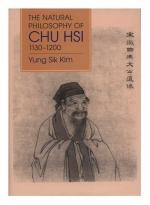|
This section contains 6,450 words (approx. 22 pages at 300 words per page) |

|
SOURCE: “The Moral Order,” in Chu Hsi and His Masters: An Introduction to Chu Hsi and the Sung School of Chinese Philosophy, Probsthain & Co., 1923, pp. 161-83.
In the essay below, Bruce analyzes the concept of Tao and examines how Chu Hsi's interpretation of it differed from that of contemporary Taoists. Bruce emphasizes that Chu Hsi opposed the “ultra-transcendental” view of Tao held by the Taoists of his day.
… [The] fundamental meaning of the word Li is Law; that it is essentially ethical; and that, while it derives its name from the fact that every single thing has its own rule of existence, it also has a universal application. There is another word, Tao, which specially expresses both the universal and the ethical aspect of Li.
Tao or Moral Law
The term Tao … fills a large place in Chinese philosophy of all schools. It has given its name to...
|
This section contains 6,450 words (approx. 22 pages at 300 words per page) |

|


